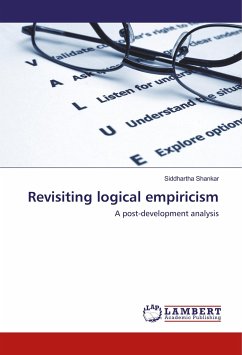
The Spirit of Empiricism? An Analysis of Empiricism as a Stance
Versandkostenfrei!
Versandfertig in 6-10 Tagen
41,99 €
inkl. MwSt.

PAYBACK Punkte
21 °P sammeln!
In 'The Empirical Stance' Bas C. van Fraassen sets out to uncover the spirit of empiricism: "what is empiricism, and what it could be, if it is to be a viable philosophy today?" (2002, p. 31). In answer to this question van Fraassen rejects the canonical characterization of empiricism as a philosophical position established on a thesis (such as all knowledge comes from sense experience), and argues that we must endorse empiricism as a philosophical position established in a stance. But what the empirical stance is or entails exactly, van Fraassen has failed to make clear. The purpose of this t...
In 'The Empirical Stance' Bas C. van Fraassen sets out to uncover the spirit of empiricism: "what is empiricism, and what it could be, if it is to be a viable philosophy today?" (2002, p. 31). In answer to this question van Fraassen rejects the canonical characterization of empiricism as a philosophical position established on a thesis (such as all knowledge comes from sense experience), and argues that we must endorse empiricism as a philosophical position established in a stance. But what the empirical stance is or entails exactly, van Fraassen has failed to make clear. The purpose of this thesis is to analyze and philosophically evaluate empiricism as a stance. In light of my analysis, however, I will argue that van Fraassen has not provided a concrete characterization of stance empiricism (or indeed stances in general), and that the concept remains problematically vague.












